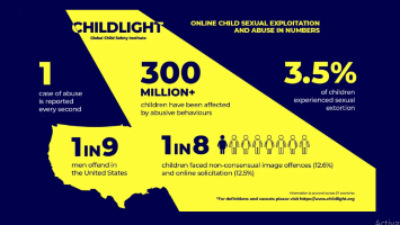NEW YORK, May 13, 2024 (GLOBE NEWSWIRE) — Tiziana Life Sciences, Ltd. (Nasdaq: TLSA) (“Tiziana” or the “Company”), a biotechnology company developing breakthrough immunomodulation therapies via novel routes of drug delivery, today announced it has submitted an FDA request to obtain Orphan Drug Designation for intranasal foralumab for the treatment of non-active secondary progressive Multiple Sclerosis (na-SPMS). This request would make foralumab the first therapy for na-SPMS to receive Orphan Drug Designation. Our request is supported by clinical and non-clinical evidence of Foralumab’s effectiveness in na-SPMS. The prevalence estimates, in part, are supported from the Brigham & Women’s Hospital, Boston, Massachusetts, longitudinal study, the CLIMB data of which allowed the estimate of na-SPMS in the population.
Foralumab, a fully human anti-CD3 monoclonal antibody, is a biological drug candidate that has been shown to stimulate T regulatory cells when dosed intranasally.[1] At present, 10 patients with na-SPMS have been dosed in an open-label intermediate-size Expanded Access (EA) Program with an additional 20 patients recently allowed to enter the program by the FDA. All patients in this expanded access program have either improved or stabilized on treatment with foralumab. 70% of patients have seen an improvement in fatigue after six months of treatment. Fatigue is a debilitating symptom for many MS patients and is measured by the Modified Fatigue Impact Scale (MFIS). None of the patients have declined in key clinical measures. In addition, intranasal foralumab is being studied in a Phase 2a, randomized, double-blind, placebo-controlled, multicenter, dose-ranging trial (NCT06292923) with a data readout planned for 2025.
“Orphan Drug Designation is granted by the FDA to drugs or biologics intended to treat a rare disease or condition, defined as one that affects fewer than 200,000 people in the U.S.,” commented Gabriele Cerrone, Chairman, acting CEO, and founder of Tiziana Life Sciences. “Orphan Drug Designation allows for up to seven years of marketing exclusivity if the product is ultimately approved for its designated indication, as well as providing the opportunity for other financial incentives to assist with development. It therefore carries significant value to our company and shareholders,” he concluded.
Once submitted, applications are reviewed by the FDA’s Orphan Drug Designation program, which determines whether all criteria for Orphan Drug Designation approval have been met. Applications are reviewed by the Orphan Drug Designation program within 90 days of receipt.[***]














